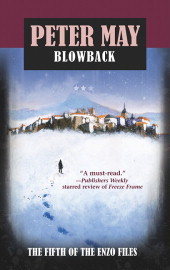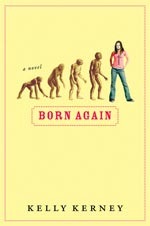Dogfight, A Love Story by Matt Burgess
 Saturday, March 5, 2011 at 12:36PM
Saturday, March 5, 2011 at 12:36PM 
Published by Doubleday on September 21, 2010
Dogfight, A Love Story was a love story for me in this sense: I loved reading it. The novel is fresh, very funny, occasionally morbid, and always energetic. It is the product of a very talented writer. In its setting and characters it reminded me of Clockers (a book I greatly enjoyed) minus the cops and with added humor, but the writing in Dogfight is of a higher quality. Burgess' writing style is exactly right for a literary crime novel: sharp and zestful and evocative. The dramatic climax (coming just before an ending that is essentially an epilogue) is frenetic, explosive, intense: powerful stuff that made me utter an involuntary "wow."
Dogfight follows Alfredo Batista during the days before and after his brother Tariq (f/k/a Jose Jr.) is released from prison. While Tariq has been serving his sentence, Alfredo, a small time drug dealer in Queens, has taken up with Tariq's girlfriend, who is now pregnant with Alfredo's child. Worried about his brother's tendency toward violence, Alfredo wants to give him a homecoming present. To that end, he engineers a robbery from a Russian street dealer -- a poor decision that will soon lead to unexpected trouble. He also tries to arrange a dogfight, despite never having seen one (dogfights not being the competition of choice in Queens).
Matt Burgess does a masterful job of merging the plot-driven demands of genre fiction with the character-driven sensibility of literary fiction. Some readers won't like Alfredo or some of the other characters because they commit crimes. But even readers who generally want to read about morally pure characters might find Alfredo to be worth their time. He's imperfect (aren't we all?) but he isn't thuggish. Despite doing something during the novel's course for which he will probably never forgive himself, he has a conscience and he experiences some personal growth, if not full redemption, by the novel's end. In any event, all of the central characters in Dogfight have distinctive, fully realized personalities. It is easy to understand their actions even if the reader might disapprove of them. At least to me, they were all interesting, filled with credible emotions, self-doubt, yearnings, regrets -- all the stuff that makes us human.
Finally, lest you be alarmed by the title, be assured that no dogs were harmed in the writing of this novel. This is a work of fiction, after all. Speaking as someone whose best friend is a golden retriever, I can safely predict that most dog lovers will recognize that this novel does not glorify or glamorize dog fighting. Quite the opposite, in fact. Animal lovers should not avoid this excellent book because of its unfortunate title.
HIGHLY RECOMMENDED
 TChris |
TChris |  Post a Comment |
Post a Comment |  HR,
HR,  Matt Burgess in
Matt Burgess in  General Fiction,
General Fiction,  Thriller
Thriller 


